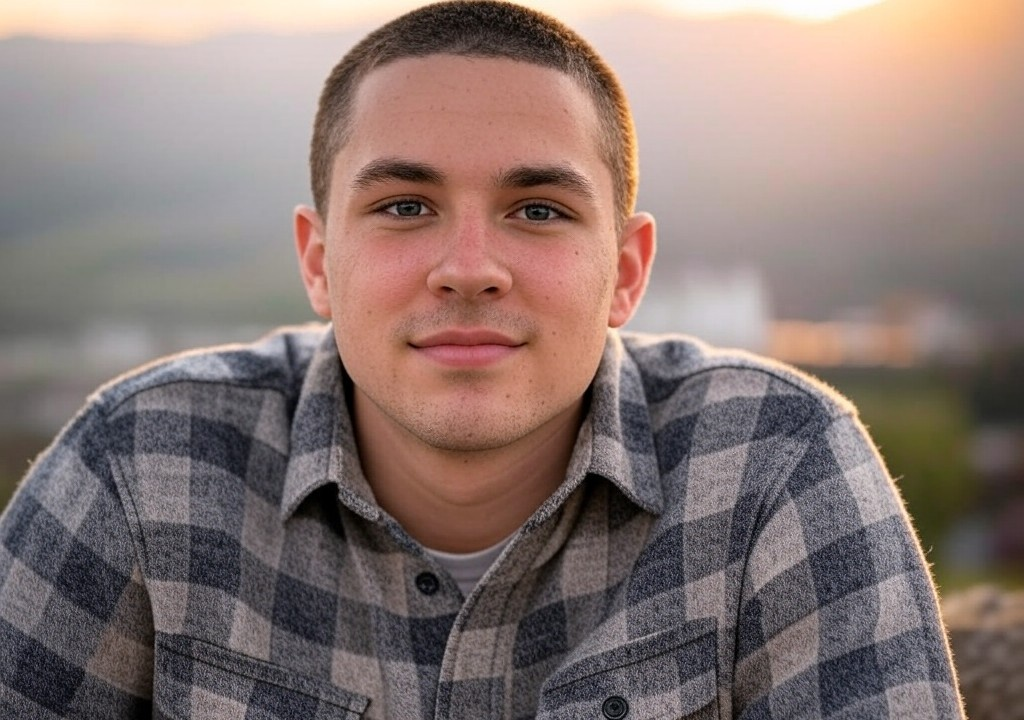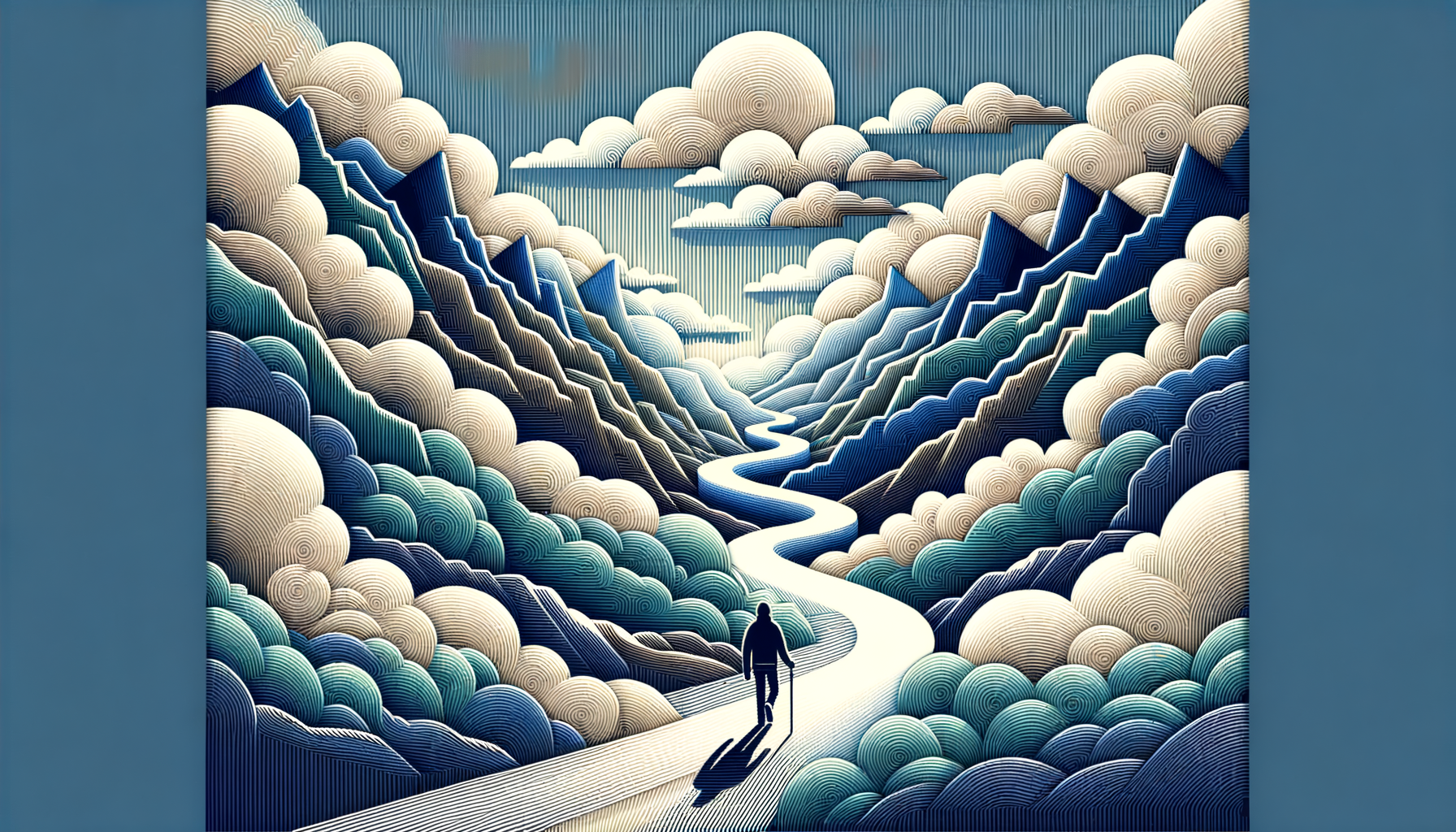Living Between Worlds
The other day, I was cleaning out my closet—a truly thrilling activity—and I came across my old missionary name tag from when I served two years in Bogotá. It was buried under a stack of hiking maps for Zion and some old journals, and even though I hadn’t seen it in years, I swear I could still smell the arepas. Holding it, I felt this strange pull of two lives converging at once: the me who had knocked on doors in Bogotá talking about eternal salvation and the me who now spends weekends binging “Ted Lasso” and having long debates over oat milk vs. whole milk cappuccinos. If I ever needed a visual representation of “living between worlds,” it was this random artifact sitting in my hands.
For me, learning how to reconcile seemingly opposite worlds—faith and individuality, tradition and creativity, the seriousness of religion versus the pure joy of a Bon Iver album—has been a lifelong journey. And you know what? It reminds me a lot about navigating relationships. Trying to meet someone where they are while staying true to yourself is no small feat. Whether you're wrestling with cultural expectations or just figuring out how to split weekends between your partner’s family traditions and your own, it’s all about finding balance.
The Sunday-Dinner-And-Spotify-Playlist Duality
Growing up as the middle child in a devout Latter-day Saint household, my family life could best be described as a live-in illustration of the phrase “cleanliness is next to godliness.” We had family scripture study every morning, family dinner every night, and more chore charts than I think NASA had for their Apollo missions. But the predictable rhythms of life were actually pretty grounding. Sundays were sacred—the one day you definitely wouldn’t catch my dad mowing the lawn or me sneaking out to catch the Saturday night dance party still running on FM radio.
Fast forward to today, where Sundays look a lot different. These days, I find peace hiking solo through Utah’s national parks with a Spotify Discover Weekly playlist providing the soundtrack of my life. I’ve swapped Sunday ties and white shirts for trail runners and beanies, yet I can’t deny the comfort I still feel when I crack open one of those dusty hymnbooks or hear the Mormon Tabernacle Choir singing “Come, Thou Fount.”
Navigating between these worlds—tradition and personal freedom—isn’t about choosing one over the other. It’s about weaving the best of both into a life that honors where you came from while still leaving room to grow. In relationships, it’s the same dance: combining traditions while making space for discovery. For example, on a particularly ambitious fourth date, I once cooked funeral potatoes for someone who had never heard of them. Spoiler alert: they loved it. Now, every so often, they’ll whip up a batch just to surprise me. Your history can be something shared, not hidden.
People Are Not Pickle Jars—They Don’t Fit Perfectly on the Shelf
Relationships are tricky because they defy categorization. And let’s be real—I love categories. A place for everything and everything in its place was practically my childhood motto. But people? People are messy. Faith feels like this absolute thing—you believe it, or you don’t. Relationships don’t work like that. You’re constantly rewriting the rules as you go, which makes it thrilling and, let’s face it, exhausting.
I learned this the awkward way last year when I met someone (let’s call them Alex) who didn’t know much—if anything—about what it means to grow up with such a faith-centered background. We were grabbing coffee (yes, a latte, because I live on the edge these days), and when I casually mentioned being raised in a devout LDS family, their face lit up with questions. “Wait, so you’re saying no caffeine? Ever?” “What about dating in high school—was that even allowed?”
At first, I felt like I was a performer in a traveling museum exhibit: Caleb From Utah, Let Him Wow You With Tales of Modesty and Scripture! But then something amazing happened. Alex didn’t lose interest. They didn’t press me into abandoning what I valued, nor did they glorify it with starry-eyed fascination. They just listened. They gave me the space to bring my history into the conversation without shoving it aside or stereotyping it into some kind of quirky niche.
Lessons From the Canyon: Balancing Two Worlds
I spend a lot of time wandering Utah’s desert landscapes because, one, they’re stunning, and two, they have this way of putting life back into perspective. I once heard someone say that walking through Bryce Canyon feels like looking into the core of the earth, into time itself, and honestly, they’re not wrong. Out there, the wind-carved rock formations and deep canyons remind me of both fragility and resilience.
Relationships are a lot like those canyons: carved over time by constant effort, occasional storms, but also the steady presence of grace. Balancing two worlds within yourself—and within a partnership—isn’t about eliminating tension; it’s about embracing the beautiful imperfections. It’s the kind of self-discovery that makes you realize how much capacity you have to grow, love, and navigate discomfort.
Here are a few takeaways I’ve picked up from “living between worlds” that might help you, too:
• Own Your Story: If you grew up with nuanced traditions or expectations, don’t bury that. It’s okay to be both the person who eats French toast for dinner on a random Tuesday and the person who knows all the words to a hymn.
• Share When It Feels Right: It’s tempting to push away pieces of yourself, especially when entering a new relationship. But someone worth keeping around will value the scraps of your story as much as the polished pieces. Lead with vulnerability when it doesn’t feel forced.
• Blend Traditions Creatively: Okay, so mixing elements of two lives or worlds doesn’t always mean they’ll go together like peanut butter and jelly. Start with small things—cooking recipes from each other’s backgrounds, watching each other’s favorite childhood movies, and yes, even debating whether pumpkin pie or pecan pie reigns supreme. (Spoiler alert: it’s pecan pie.)
The Grace of Being a Work in Progress
If there’s one thing my upbringing taught me, it’s that patience—whether with a process, a partner, or yourself—is its own act of faith. Living between worlds has felt like a tug-of-war at times, but it’s also been a map to deeper connections not only with others but also with myself. The Caleb who used to iron white shirts every Sunday morning isn’t all that different from the Caleb who now wrestles with existential questions on a red rock ledge in Arches. And that’s the beauty of it—it’s all still me.
So whether it’s figuring out how to compromise on the thermostat setting with your partner (seriously, why is it always 68 degrees?) or reconciling traditions from your upbringing with your experiences today, just remember: life is beautifully complicated. You don’t have to have one foot planted perfectly in every world you inhabit. It’s enough to simply navigate the in-between spaces with curiosity, kindness, and maybe a side of funeral potatoes.




















